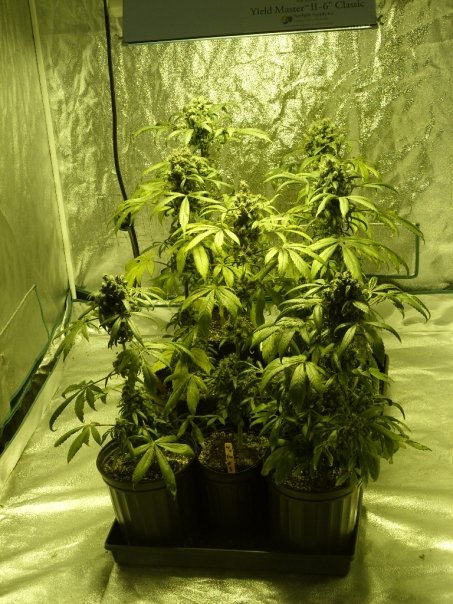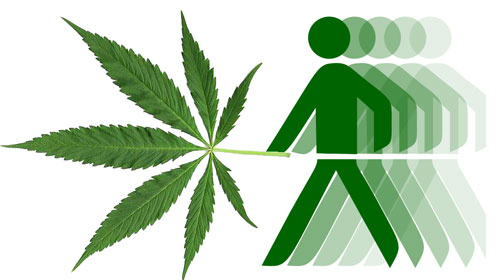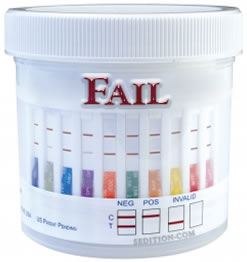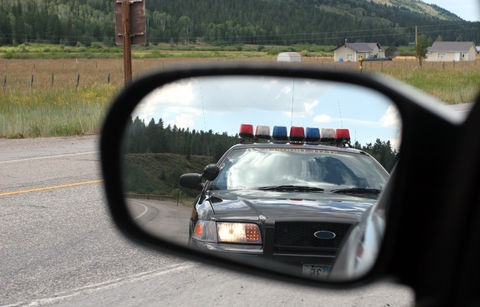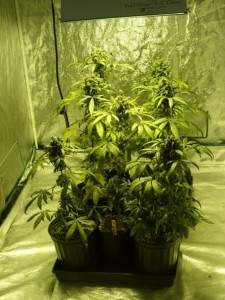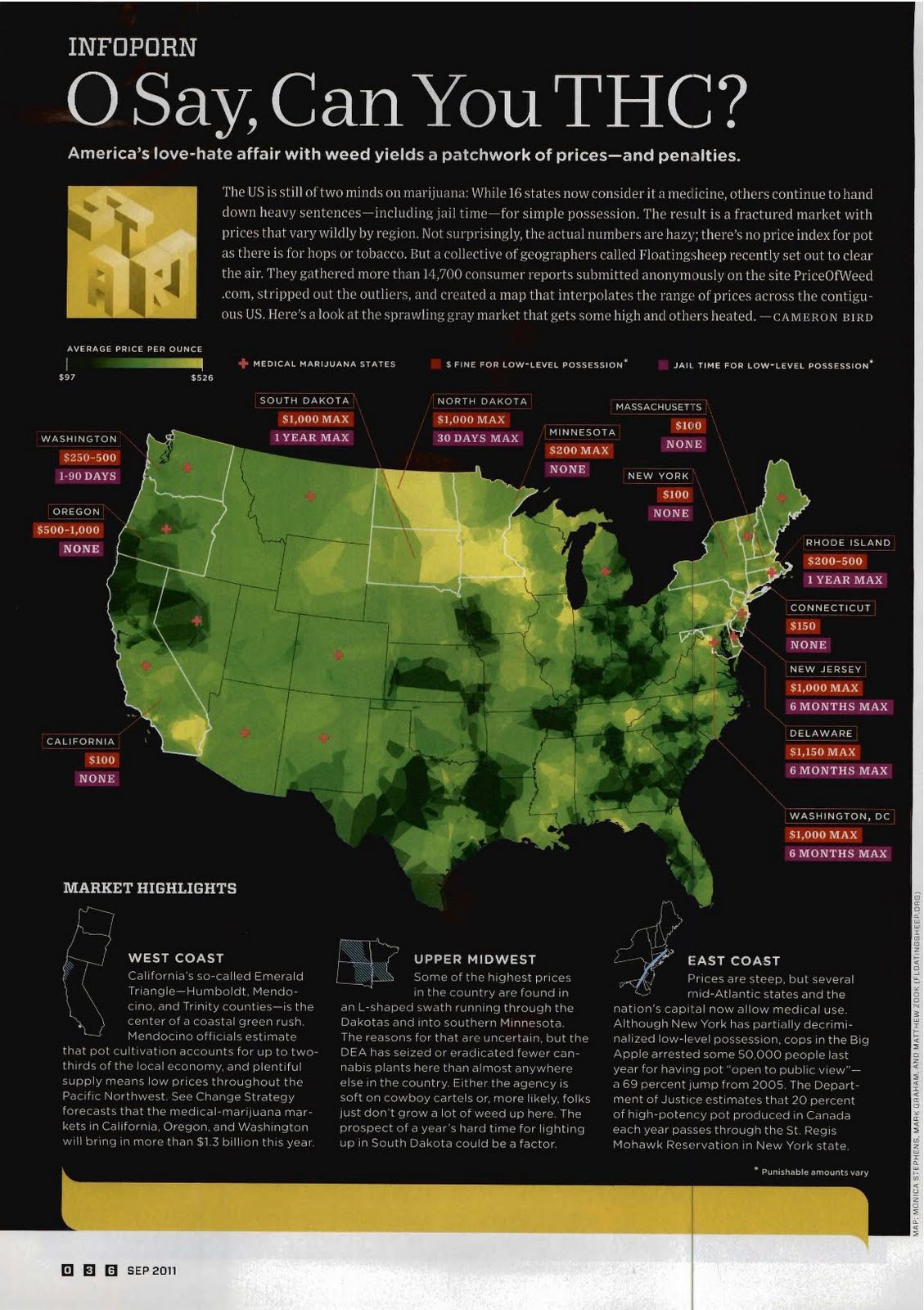 5/27/2011: UPDATE 6/4/2011 – Elected officials on the East Coast continue a period of intense activity working on marijuana reform bills. From Maine to Florida legislators are considering medical access, decriminalization and full legalization of cannabis for recreational use. Some bills have passed or remain active while others have been stalled or killed in committees. Here are some details of the notable actions along with a quick-reference list that includes activism links.
5/27/2011: UPDATE 6/4/2011 – Elected officials on the East Coast continue a period of intense activity working on marijuana reform bills. From Maine to Florida legislators are considering medical access, decriminalization and full legalization of cannabis for recreational use. Some bills have passed or remain active while others have been stalled or killed in committees. Here are some details of the notable actions along with a quick-reference list that includes activism links.
Delaware passed a medical marijuana bill that Governor Jack Markell signed on May 14th. The law allows qualifying patients to access up to 6 ounces of cannabis per month. Yet patients will not be allowed to cultivate at home or form collective gardens. A centralized production and distribution system will be created in each county…unless federal interference prevents them.
Vermont has passed a bill, SB 17, to legalize and regulate medical cannabis dispensaries. Governor Pete Schumlin has not yet signed it into law. The state already allows seriously ill residents access to cannabis. The new legislation would require patients to choose whether to cultivate or access a dispensary. [UPDATE – Vermont Governor signed the bill into law June 2, 2011.]
Maryland passed and signed into law a concept that is referred to as an “affirmative medical necessity defense.” The provisions signed on May 10th allow those who are arrested or minor marijuana possession to present medical records when they go to court. If the resident is deemed to suffer from a serious condition then they pay a $100 fine. A bill that would have created a safe access dispensary system was not passed. Instead, a heavily altered bill was turned into discovery exercise. Maryland will now explore the issue through a special study group.
Maine had the first public hearings on the East Coast for a bill to tax and regulate recreational marijuana, LD 1453. They were well attended on May10th. Ultimately the Criminal Justice and Public Safety Committee did not recommend passage, but the bill is still alive. Maine is currently moving ahead with opening the first medical cannabis dispensaries in the state; two have now started operations. A pair of bills, LD750 and LD754, that would expand the state’s existing decriminalization law to allow for up to 5 ounces and/or six plants had hearings. Finally, LD 1296 amended state law to make the cannabis patient registry a volunteer-only requirement to protect patient privacy.
New York is seeing a major effort underway to standardize a long-standing marijuana decriminalization law. Back in 1977 the state made small amounts of pot a civil offense. But New York City police are still arresting 50,000 people every year for joints and dime-bags. SB5187/AB7620 would standardize the penalty for possession of 25 grams or less to a $100 non-criminal fine. New York has also been considering a medical marijuana bill for over a decade. The Assembly passed the measure but the Senate let the bill time-out.
Rhode Island has suspended three medical marijuana dispensaries that were approved by the state. The hold was placed by Governor Lincoln Chaffee after he received a letter from US Attorney Peter Neronha detailing the conflict with federal law. Separately, notable hearings were held in the state Senate on HB5031 /SO270, a decriminalization bill. [UPDATE – US Attorney General Eric Holder says that he will work with RI Gov. Chafee and other states on authorized dispensaries on June 2, 2011.]
New Hampshire has been very close to passing a medical marijuana law for several years. But Governor John Lynch, nearly single handedly, has stopped the effort. HB 442 passed a floor vote in the House this March. But the Senate denied the bill a floor vote after another veto threat from Gov. Lynch.
New Jersey has also suspended the six approved medical marijuana Alternative Treatment Centers. Governor Chris Christie directed state Attorney General Paula Dow to seek clarification from federal authorities at the US Department of Justice before moving ahead. Meanwhile, NJ Legislators are still considering changes to final regulations for the program. ACR188/SCR151 would throw out the most restrictive provisions proposed by Governor Christie’s administration, including a 10% cap on THC potency. Also, a new resolution was introduced on May 26th, SCR120, that would have New Jersey support the “States’ Medical Marijuana Patient Protection Act” now active in the US Congress.
Connecticut is moving forward on a decriminalization bill. Governor’s Bill 1014 was passed by the Judiciary Committee and now goes to the Senate for a floor vote. After amendments the bill would make possession of ½ ounce or less by adults a civil penalty punishable by a fine only.
Quick reference list of East Coast legislative action on marijuana:
Legalize, Tax and Regulate
Maine: LD 1453 – Active. First hearings held, no further scheduled.
Rhode Island: HB 5591– Active, assigned to committee; no scheduled hearings.
Massachusetts: HB 1371- Active, assigned to committee; no scheduled hearings.
Decriminalization
Vermont: HB 427 – Active, assigned to committee; no scheduled hearings.
Connecticut: SB953 – final vote scheduled before Senate
New York: SO5187/AB7620 Penalty standardization bill – Active, assigned to committee; no scheduled hearings.
Maine: LD 750 and LD754 – Killed in committee.
Maryland: HB 606 – passed/signed
Virginia: HB 1443 – killed in committee 1/17/2011
North Carolina: HB 324 – Active, assigned to committee; no scheduled hearings.
Rhode Island: HB 5031/SO270 – Stalled in Senate 5/24/2011
Medical Marijuana
Maine: Dispensaries opening; LD 1296 Medical Marijuana Protection- passed
New Hampshire: HB442 – Cleared committee on 3/10/2011, stopped in Senate 5/10
Vermont: SB 17 – passed both houses – signed into law on 6/2/2011
Connecticut: HB 6566, – stalled
Massachusetts: HB 625 – Active, assigned to committee; no scheduled hearings.
Rhode Island: Medical marijuana dispensaries on hold
New York: S2774 – Passed by Assembly, timed-out in Senate
Delaware: SB 17- passed, signed into law by Go. Markell
New Jersey: Alternative Treatment Centers on hold;
Invalidation of Medical Marijuana regulations, ACR188/ACR151 – Active for final floor votes
Support federal Medical Marijuana Patient Protection Act: SCR120 – Active
Maryland: Medical Marijuana program study exercise approved
Pennsylvania: SB 1003 – Active, assigned to committee; no scheduled hearings.
Delaware: SB 17 – passed/signed.
North Carolina: HB 577 – Active, assigned to committee; no scheduled hearings.
Washington DC: Medical marijuana program implementation, final dates unclear
West Virginia: HB 3251
Florida: HJR 1407 – Active, assigned to committee; no scheduled hearings.
Check back for updates here at Freedomisgreen.com.
Get involved with cannabis reform:
NORML- www.norml.org
Students for Sensible Drug Policy – www.ssdp.org
The Drug Policy Alliance – www.drugpolicy.org
The Marijuana Policy Project – www.mpp.org
NORML Women’s Alliance – http://norml.org/index.cfm?Group_ID=8059
Willie Nelson’s Teapot Party – www.teapotparty.org
 Chris Goldstein is a respected marijuana reform advocate. As a writer and radio broadcaster he has been covering cannabis news for over a decade. Questions? [email protected]
Chris Goldstein is a respected marijuana reform advocate. As a writer and radio broadcaster he has been covering cannabis news for over a decade. Questions? [email protected]
